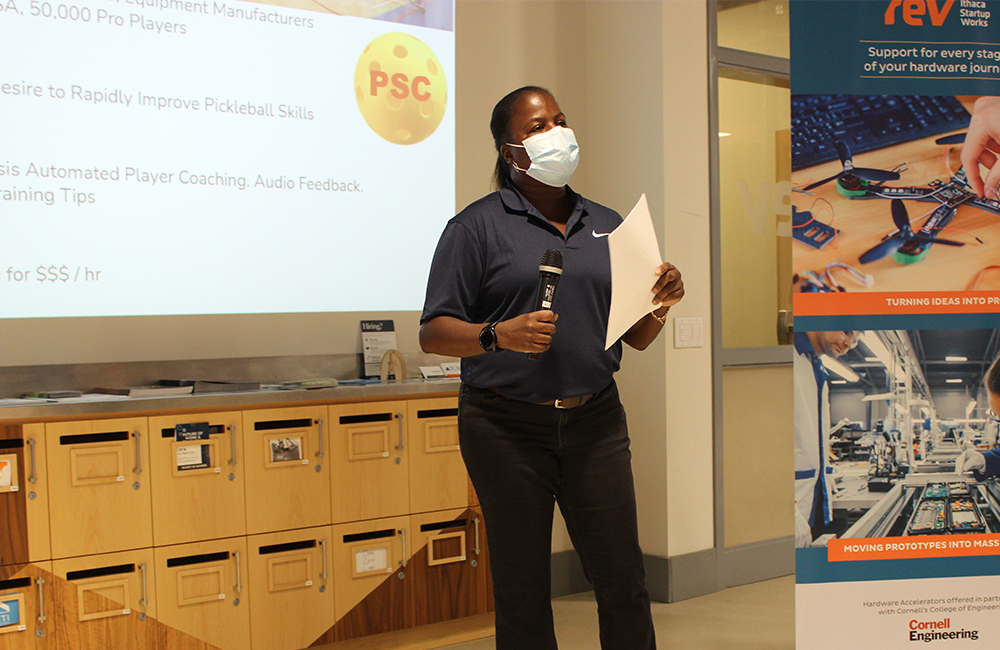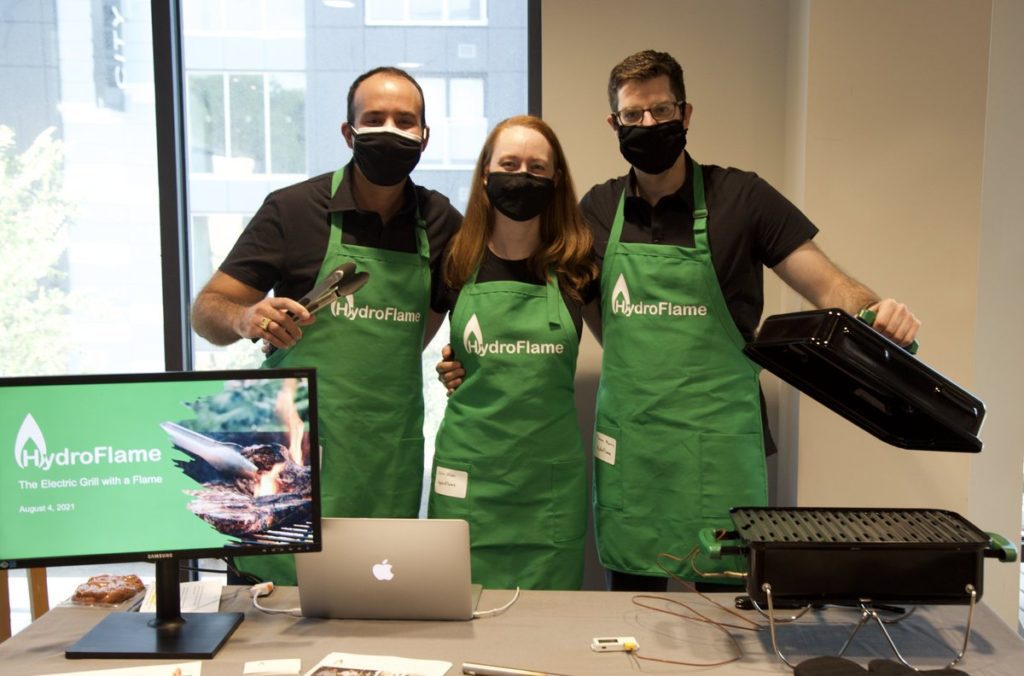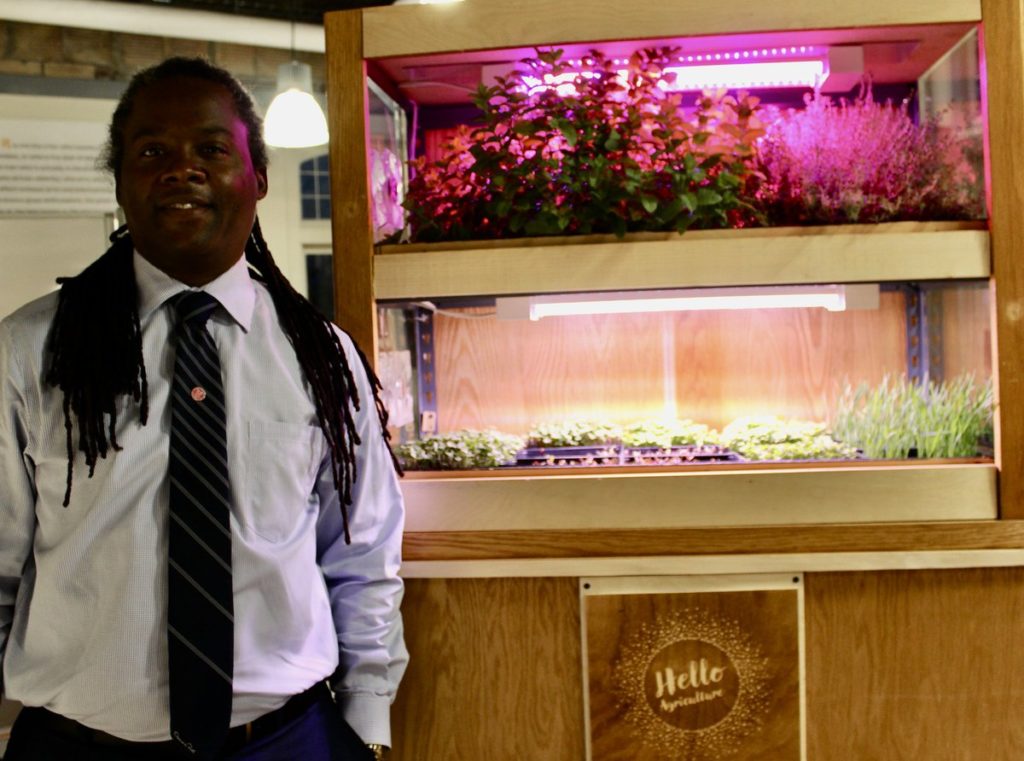
Demo Day Highlights Unique Ideas and ClimateTech Innovations
Earlier this week, over 70 members of the startup community gathered at Rev: Ithaca Startup Works to be some of the first to witness the innovations that came from this year’s Prototyping Hardware Accelerator and ClimateTech Prototyping Hardware Accelerator cohorts. Demo Day, an annual favorite event of the Ithaca entrepreneurial ecosystem, celebrates the work of the accelerator participants and enables them to pitch their business ideas, demonstrate their prototypes, and connect with potential mentors, investors, and customers.
The Prototyping Hardware Accelerator, launched in 2014 in collaboration with the Cornell University College of Engineering, is an 11-week program designed for early-stage hardware entrepreneurs to test their business model and product concept. Overseen by Program Director Steve Supron, participants work through three sprints, testing the feasibility, viability, and desirability of their products.
“In some cases, we’re pushing the edge of science a little bit,” said Ken Rother, Director of Rev: Ithaca Startup Works. “But ultimately, if it all works out, you’ll make something that truly solves a customer’s problem and creates a viable business where your revenues exceed your costs.”
This year’s Demo Day also marked the completion of the inaugural ClimateTech Prototyping Hardware Accelerator cohort. Funded by NYSERDA, this program works to support entrepreneurs through the challenges that are unique to cleantech founders through specialized workshops and access to mentorship from industry experts.
“We were so fortunate to win a grant from NYSERDA to expand the program to focus not only on hardware companies, but hardware companies that are doing ClimateTech related projects, whether it’s carbon emission reduction, energy creation, or energy efficiency,” said Rother.
Through their pitches, founders shared their journeys from concept to prototype, as well as their takeaways from their summer at Rev and future goals for their businesses. Common themes included learning about the importance of customer discovery and being adaptable throughout the prototyping process.
Pitches from the classic Prototyping Accelerator included:
- HelloAgriculture: Olu Roberts and Jon Karall are creating GrowBoxx, an innovative IoT-enabled indoor vertical farm that allows grocers and chefs to provide customers with the absolute freshest micro-greens and vegetables.
- Pickleball Smart Court: Founded by Lesa Carter and David MacPherson, Pickleball Smart Court capitalizes on the fastest-growing sport in the United States and provides automated video analysis and player coaching for pro pickleball players and teams.
- Vismow: Barbara Headrick’s Vismow eliminates the hazards that are inherent in robotic lawn mowers by creating safety accessories and attachments to be sold alongside the mowers.
- Wine Sommelito: Created by K.K. Prettyfields, Wine Sommelito is an innovative product that allows wine students and lovers alike to sample wines from a diverse array of regional wineries.
- Tapi Music: Mark Bonner’s Tapi Music is a portable music device that allows users to produce multiple octaves of sound from one small instrument. This easy-to-use device has the potential to revolutionize music education and get more young people invested in creating music.
- f e e l: Founded by Adelaide Fuller and Alex Garay, f e e l is a line of smart jewelry that uses wearable sensors and an emotional learning platform that allows young professionals to acknowledge and address workplace stress.
“Rev taught us so much this summer about customer discovery and using tools to create working prototypes,” said Fuller of f e e l. “Our next step is to create a limited launch of prototypes, and work towards a commercial launch for Holiday 2022 gifting.”
Next, the ClimateTech participants presented their pitches. These teams included:
- Black Cat: Founded by Scott Hartman, along with summer interns Ben Inbar, Jin Ryu, Tinsae Giblin, Kimberly Yap, and Gavin Stoddard, Black Cat is a proprietary self-propelled lawn mower system that doesn’t need to be charged or fueled. This eliminates the noise, heat, and pollution that come from traditional lawn mowers.
- Acsensio LLC: James Whyte and Shreyas Renganathan founded Acsensio LLC, a non-invasive IoT solution that retrofits existing laundry appliances with “smart” technology that allows renters to remotely monitor shared washers and dryers.
- G.H.O.S.T.: Shaun Bluethenthal’s G.H.O.S.T. is a drone crop sprayer that allows farmers and crop producers to effectively distribute farm fertilizer, improving plant health, farm profitability, and consumer health.
- Hydroflame: Katie Olsen, Thomas Murray, and Daniel Handal created Hydroflame, an outdoor grill that uses just water and electricity to provide users with an easy and accessible flame-based grilling experience. This eliminates many of the struggles that come with fuel grilling and is a zero-waste process.
- Team Clean Air: Created by Robert Koch and Pete Weisz, the Team Clean Air product is a solar-powered, weather-resistant, affordable air quality sensor that can be placed in cities around the United States to provide more localized air quality monitoring.
- Hazon Yarok: Founded by Moshe Schtrauch, Hazon Yarok is a cleantech startup with the mission of “reinventing the forest” through hybrid tree-like devices that leverage the power of solar farms while leaving space for crop development.
- Capro-X: Juan Guzman’s Capro-X diverts the acid whey byproduct that comes from greek yogurt production and turns it into valuable biofuels, thereby reducing waste and carbon emissions.
Following the pitches, participants also had the chance to demonstrate their prototypes and connect individually with guests and audience members to answer questions and receive feedback. Standout tables included Hello Agriculture’s GrowBoxx prototype and Hydroflame’s working hydrogen grill.

The Hydroflame team standing with their innovative grill that runs on just water and electricity. 
Olu Roberts of HelloAgriculture standing with a GrowBoxx, which brings “fresher food than ever to restaurants near you.”
Following such a successful summer, the next step for many of these participants will be working towards a manufacturing launch. Funded by the U.S. Economic Development Administration, Rev’s Manufacturing Hardware Accelerator is a 60-week cohort-based program for startups based anywhere in the U.S. that have a fully functional prototype and identifiable customer market. The Manufacturing Hardware Accelerator is currently accepting applications for its second cohort, which begins in October 2021. The deadline to apply is September 20, 2021. Questions? Attend an information session to learn more.


